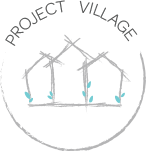https://resilientmilitaryspouse.com/
If 2020 has taught us anything, it’s the importance of learning and maintaining a mindset of adaptability. In order to be more adaptable, we need to have a strong sense of resiliency with a minimal number of stressors. The way you perceive possible stressors will help you navigate them when they happen. Life as a military spouse provides a wealth of perspective. The advice that follows isn’t only beneficial for the military community, it can be applied to all of us.
1.) List out your “What If’s”
As a military spouse, I often plan my life around “what if” questions. “What if there are unexpected orders to move?” “What if my Service Member deploys?” Understanding what I could be up against will help me plan for a list of potential outcomes. This helps me measure my own adaptability. It forces me to challenge myself by asking how I will handle potential stressors.
Take some time to think about the what if’s in your life. Things such as, “What if my children can’t return to school and I have to work remotely?” “What if my line of work becomes obsolete?” Or the biggest question of the year; “What if a pandemic occurs and everything shuts down?”
It’s important to think about how you will handle worst case scenarios. However, it is equally important to think about how you will handle the good too. “What if I put myself out there and it goes well?” or “What if I succeed?”.
2.) Build a “What If” Action Plan
Pull each item from the list you just made and dig deeper. Reframe each “what if” into the following statement.
“If_____ happens, the next steps I take will be to____.”
Putting it into words is the first step. Then you can list out exactly what you need to do if that “what if” occurs. This is why there are wills (in the event of a death) and contracts (to ensure everyone holds up their end of a business agreement). However, there are so many other stressors that can consume our thoughts and test our resiliency; don’t those other aspects of your life deserve a plan too?
Covid-19 has taught a lot of people to put contingency plans together faster than before. Plans that are still enabling them to reach their goals. Plans that are adaptable to our changing world. Determine what your goals are and build your plan around it.
Try not to get sucked down any rabbit holes. While it is important to plan for what we can foresee happening. It’s going to be impossible to plan for every possible outcome that could transpire. Give yourself some solid “what if’s” with some solid solutions. Then prepare yourself for the possibility that plans may change.
When it comes to military life, planning your life around a deployment can happen a little last minute. Part of this is because there may be an expected deployment. Other times, it’s lack of interest in creating a plan. While being more adaptable can be prepared through prior preparation. Sometimes, being more adaptable means that you have to be flexible in the moment.
3.) Forget Everything
In order to get a strong plan, it could require some new knowledge. You have heard the saying, “insanity is doing the same thing over and over again but expecting different results.” When it comes to being adaptable, you are acknowledging that the coping skills you used in the past may not work for future problems. This is where you will actively unlearn.
The goal is to override what you thought you knew with new information. There’s a brain coach by the name of Jim Kwik who claims that the first step in learning anything faster is by forgetting what you thought you knew about the subject. When you set aside your own biases on a topic, you are able to more readily absorb the information you are bringing in.
Here’s an example: Due to the pandemic, a lot of families have had to let go of what they thought homeschooling meant in order to gain an understanding of what it means for them and their family.
Drawing on what I have seen with families and deployments, spouses and families who are able to “forget” about what they think a deployment is supposed to look like are able to better re-frame the experience to their benefit. They use it as a time for growth, adventure and discovery.
4.) Embrace the Unknown
Embracing the unknown will help you grow in adaptability. Instead of focusing on areas of your life in which you are already successful, consider exploring areas of growth in your life. Practice putting yourself out of your comfort zone to develop your weaknesses into skills. Even if you don’t enjoy what you are learning, you will be surprised to see the benefit it may have in your life. If you can’t master it, you are still putting yourself ahead. When an unexpected life event occurs, it will be easier for you to cope because you’ll have a wider variety of skills upon which to fall back.
If life as a military spouse has taught me anything, it is to be ready.
Ultimately, things will change, and the central question you have to ask yourself is, “are you ready?”

